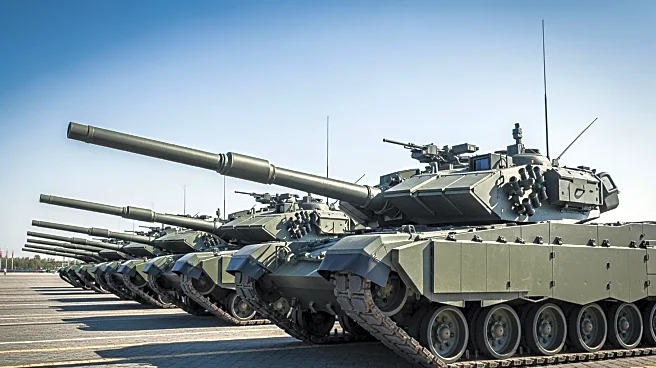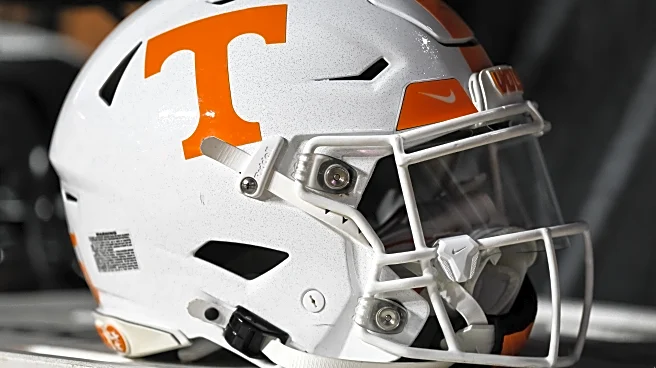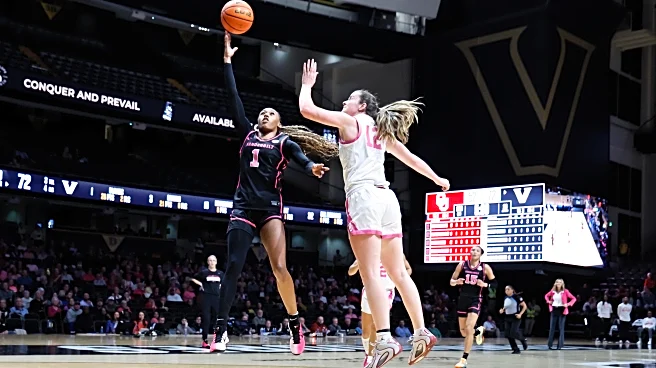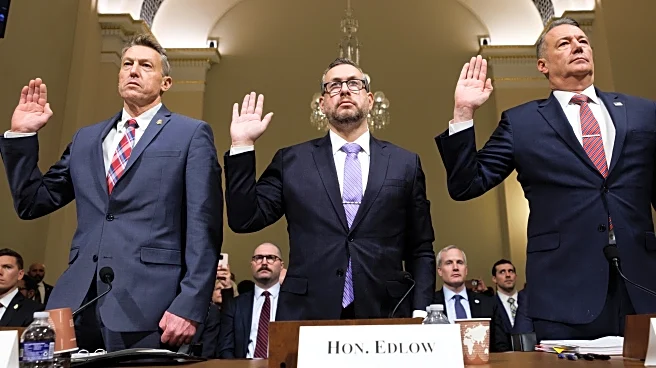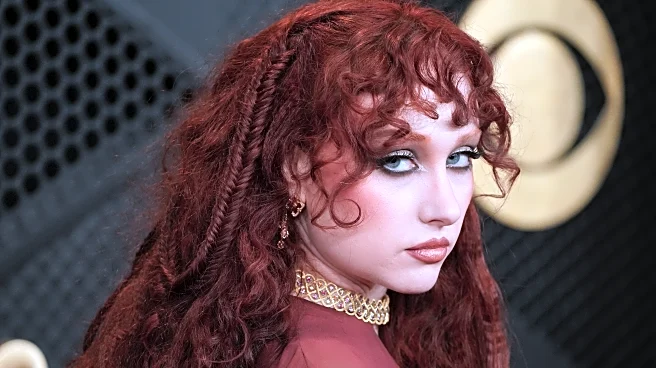What's Happening?
Chinese leader Xi Jinping presided over a military parade in Beijing to commemorate the 80th anniversary of the end of World War II. The event featured a display of China's military capabilities, including missiles and modern fighter jets, some of which were shown publicly for the first time. Xi emphasized the choice between peace and war, urging the eradication of war roots to prevent history from repeating itself. The parade included an 80-gun artillery salute and patriotic songs, with Xi flanked by Russian President Vladimir Putin and North Korean leader Kim Jong Un.
Why It's Important?
The parade serves as a demonstration of China's growing military power and its ambition to influence global affairs. Domestically, it reinforces the Communist Party's narrative of China's progress since WWII. Internationally, the presence of leaders like Putin and Kim highlights China's strategic alliances and its role as a counterbalance to U.S. influence. The event underscores China's efforts to position itself as a global leader, potentially affecting geopolitical dynamics and international relations.
What's Next?
China's display of military strength may prompt reactions from global powers, particularly the United States, which could lead to increased diplomatic tensions. The event may also influence China's foreign policy, as it seeks to expand its influence and strengthen alliances. Observers will watch for any shifts in military or diplomatic strategies from China and its allies.
Beyond the Headlines
The parade reflects China's historical narrative and its desire to reshape global perceptions of its role in WWII. It also highlights the ethical and cultural dimensions of military displays, as China balances its image as a peace advocate with its demonstration of military might.
